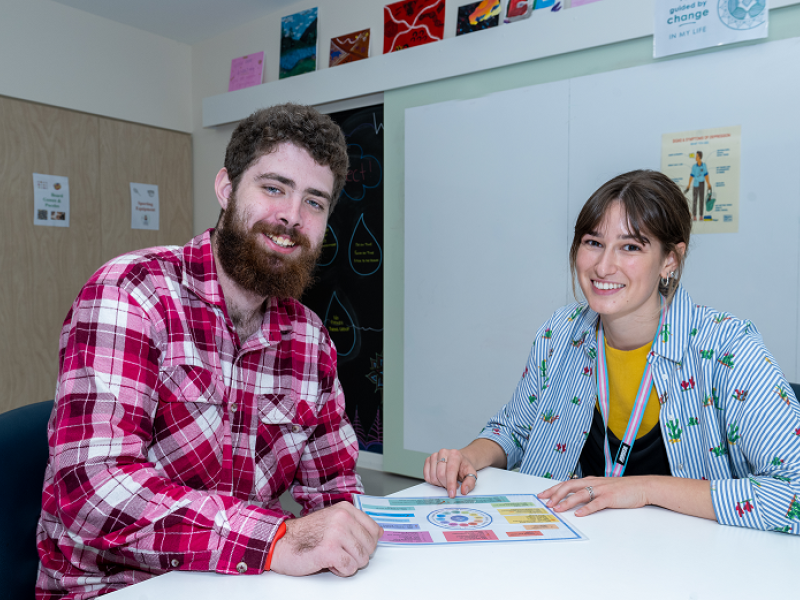A couple of weeks of the right support can be life-changing.
Service Manager Kiran Zunker sees young people leave the Youth Step Up Step Down (YSUSD) service in Caboolture, Queensland, in a significantly more positive situation than when they entered a fortnight earlier.
Young people (15 and 21 years) who are in challenging circumstances come to stay at this short-term residential support service to learn better coping strategies.
“Many young people come to us from unstable home environments or from homelessness, and a majority are experiencing significant trauma,” Kiran says.
“A lot of the young people that come here have been using self-harm as a coping strategy for the really intense emotions they are experiencing. Some also have problems with drug and alcohol use.
“Our service users are still young and learning new skills and ways to process challenging emotions and experiences more productively.”
Young people who come to the Mind-managed service undertake a two-week Dialectical Behaviour Therapy program. In the first week they learn distress tolerance skills and in the second week they learn interpersonal effectiveness and emotional regulation.
“Every day we do one group from this program and one group from the Mind Recovery College. In the afternoons we have a practice session of skills learnt that day,” Kiran says.
The service’s family engagement workers also support parents to get the same skills the young person is learning, to maximise the opportunity for sustained improvement in family relationships.
The support team also connects young people to external support services to further help consolidate their recovery.
“That’s things like mental health supports and employment providers - and community social groups based on their interests are important too, as many are experiencing isolation,” Kiran says.
Young people can stay at the service for up to 28 days but the average stay is a fortnight. Kiran says the change in that time is often remarkable.
“From entry to exit I see them become more confident in going home in terms of coping and managing everyday tasks.”
Outcome measures collected by Mind demonstrate the significant improvements for service users of this model of support, not just at the Caboolture youth service but across the 15 short term residential support services managed by Mind, in Victoria, Queensland and Western Australia. (These are called Prevention and Recovery Care (PARC) services in Victoria).
Key outcomes findings
The Mind Research team measures outcomes using validated instruments including the Kessler 6 for psychological distress and bespoke items according to the service stream being assessed.
“We design our surveys to target the specific outcomes each service stream is aiming to provide,” says Dr Laura Hayes, Mind’s Manager of Research and Evaluation.
“For instance, at SUSDs and PARCs, key aims are to reduce people’s psychological distress and support them to better manage daily living in the community.”
Mind collected data from 1098 residents from 15 SUSD/PARC sites in Victoria, Queensland, and Western Australia across the 2022-2023 Financial Year. Data was also collected from 111 carers of SUSD and PARC service users, to measure their experience.
